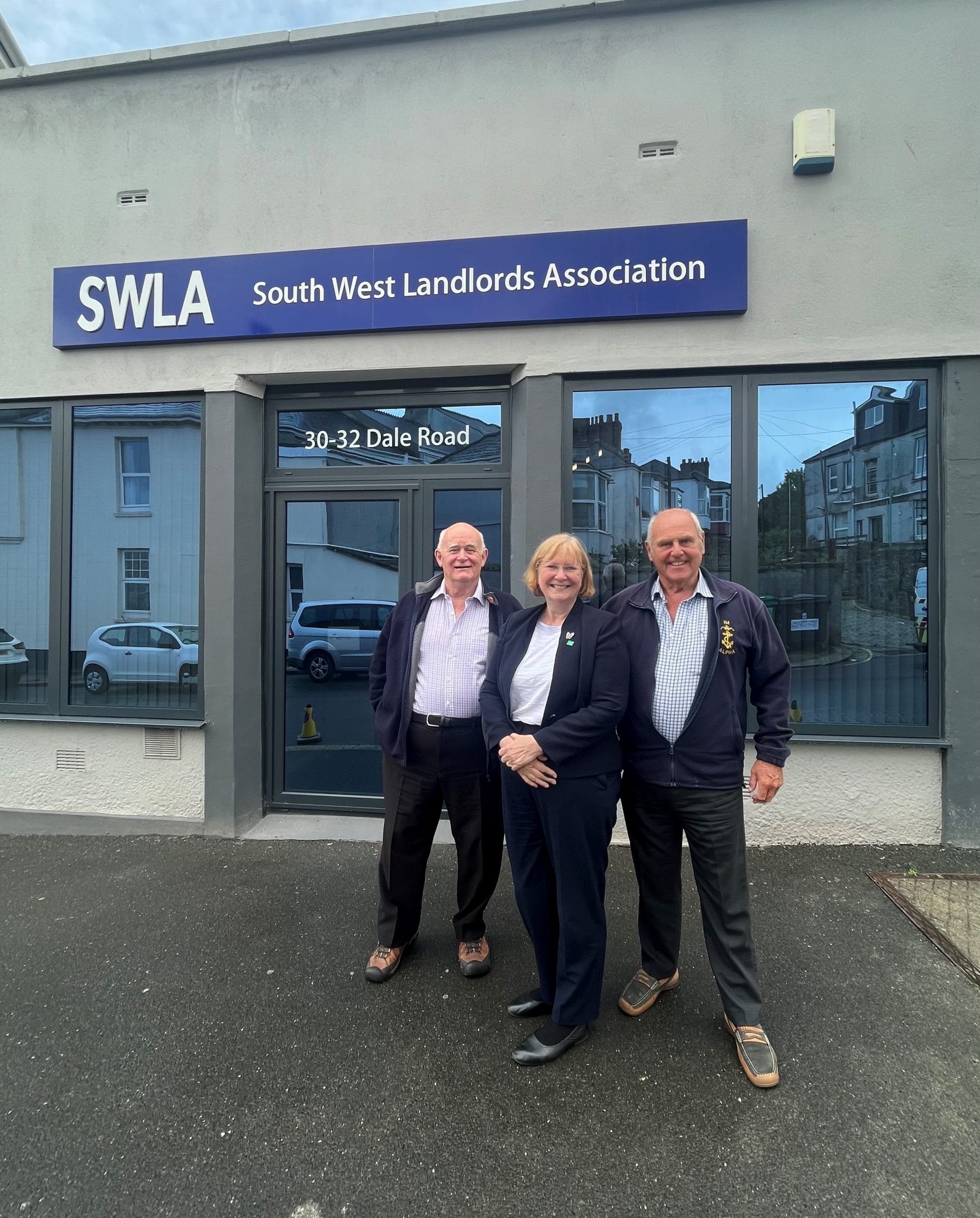
SWLA General Speaker Meeting Review
Thanks our 54 members and guests who braved the bad weather to attend our latest speaker meeting at The Future Inn, Plymouth! It was great

Thanks our 54 members and guests who braved the bad weather to attend our latest speaker meeting at The Future Inn, Plymouth! It was great

Landlord Accreditation Training Course – Face to Face Tuesday 6th February 2024 – 9:15 – 4:30pm Venue – Reception Room, Plymouth Council House, Armada Way,

This month’s 30 minute Ashley Taylors Legal Webinar looks at this Bill as currently drafted, it will give you a view of what to expect

SWLA TradePoint members will receive their usual 10% off on top.

Housing Secretary Michael Gove has suggested that the Bill is scheduled for its Second Reading later this autumn. Addressing Conservative conference delegates at a Centre

The SWLA President, Chairman and Office Manager held a meeting in their offices, 03 October 2023, with Councillor Chris Penberthy (Cabinet Member for Community Connections),

The How to Rent Guide was updated and republished on 02 October 2023. The changes are as follows; ”The How to Rent guide has been

PATH (Plymouth Access to Housing) are seeking properties in Plymouth for people in need of housing. There are many families with children and single people

When: Tuesday 26 September 2023 11:30am – 12.20pmTopic: Changes to the HHSRS and the new Damp and Mould GuidelinesRegister in advance for this webinar: https://us02web.zoom.us/webinar/register/WN_epS3xNJiQ26SSn0cI9lQWgAfter

The Prime Minister announced that the proposed plans, which would require landlords to upgrade private rented properties to EPC band C by 2025 or 2028,

It’s been a while since we last met with Alison, so we had lots of catching up to do. Items on the agenda included the

Article by GoSimpleTax It’s an all too familiar scene for many sole traders, landlords and other Self Assessment taxpayers. Despite leaving it until a week
